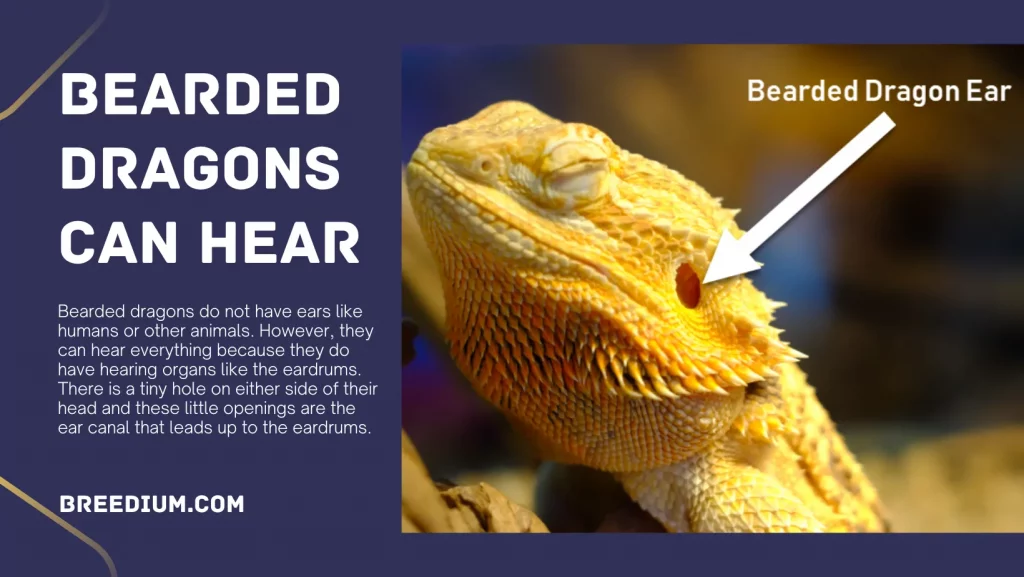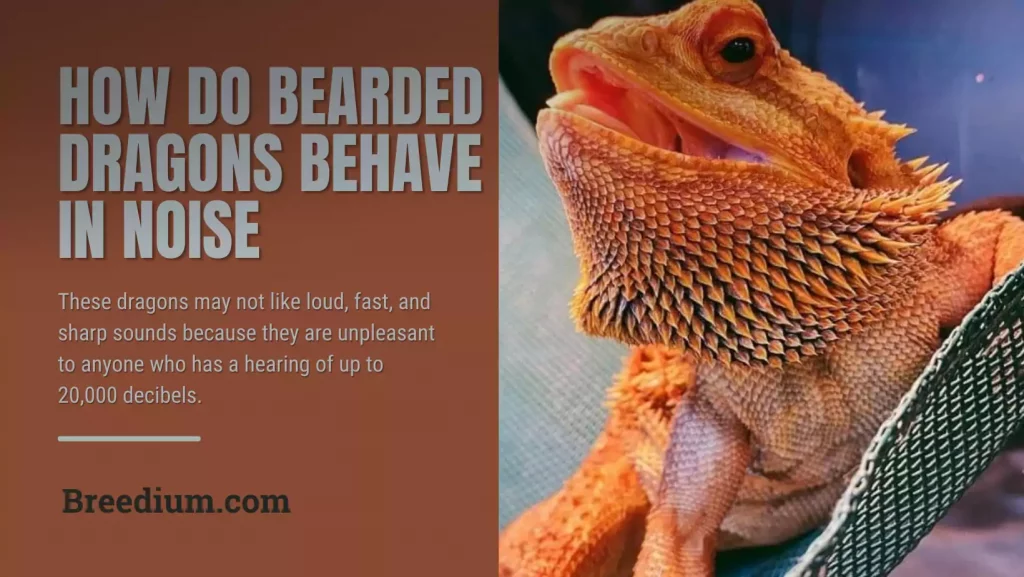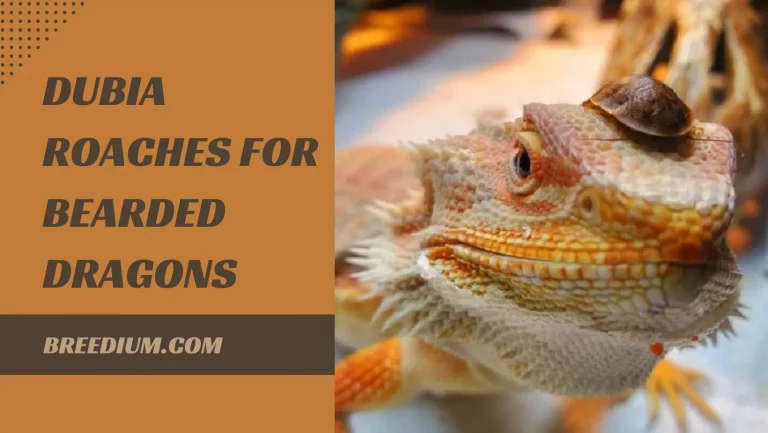Can Bearded Dragons Hear? | Understanding Their Senses 2024
Bearded dragons are reptilians that have scaly skins and long tails. These dragons are often called strange names like big lizards, or desert lizards. However, they are different from other reptilians. Do bearded dragons have ears like dragons in stories? Can bearded dragons hear? The more you know about bearded dragons, the better you will be able to provide them with proper care and a homely environment. Bearded dragons have heads like other reptilians and they do not have long ears, or they do not spit fire like dragons in stories. Here is more about whether they can hear or not.
Can Bearded Dragons Hear
Bearded dragons do not have ears like humans or other animals. However, they can hear everything because they do have hearing organs like the eardrums. There is a tiny hole on either side of their head and these little openings are the ear canal that leads up to the eardrums.
Bearded dragons have a better sense of hearing than other reptilians and they can hear sounds that many other reptilians cannot hear. We often believe that reptiles are feelingless and do not care about the outer world, but that is not true. These creatures hear everything and absorb noises and their behavior is in accordance with it. Only because humans cannot see the ears on the bearded dragon’s head, do they feel that they might not hear anything that goes around them.
How Do Bearded Dragon Ears Work
As we mentioned earlier, bearded dragons have eardrums and can hear sounds through the vibration of air. Just like human ears work, bearded dragons hear low and high vibrations and their brain translates them into sound. The tiny bones and membranes inside the ears help the sound pass sound into the ear cavity. These sounds are airborne and the tympanic membrane inside the ear helps turn these sound waves into voices.
The reason that bearded dragons have holes instead of ears is that they require reduced dust and will only listen to sounds without any interference from dust blockages. There are several other functions of ears for humans and bearded dragons. Firstly, these dragons can balance themselves with the aid of airwaves and sound around them. The balance comes from the air traveling into the ears and giving these creatures a good sense of their location below, above, or at a particular level.
When hunting, bearded dragons can detect small sounds like the crackling of twigs and they can assess how close or far their prey is. On the contrary, these ears also prove to be a defense tool as dragons can hear predators and determine the distance so that they can hide or prepare themselves for any danger. Ears also help bearded dragons understand the weather conditions and assess winds or rain. These wild reptilians are programmed to save themselves from any unwanted or unfavorable conditions whether it is environmental or circumstantial.
How Do Bearded Dragons Behave In Noise
Bearded dragons take a noise like an offensive intrusion. You have to keep in mind that sound travels through the air as vibrations. Since bearded dragons are near the ground, with all four limbs planted, they feel the vibrations and also hear the sounds around them. These dragons may not like loud, fast, and sharp sounds because they are unpleasant to anyone who has a hearing of up to 20,000 decibels.
When these dragons hear a loud noise or continuous unpleasant noise, they become irritable and often begin to react in different ways. These reptilians are sensitive to light sounds as well and can react to sounds that their owners might not be able to hear. For example, these creatures prey on insects and can hear the buzzing or fluttering of flying insects more than any of us can!
Bearded Dragons React To Music
While many people believe that music is any interment played at various volumes and paces, for bearded dragons music is supposed to be more soulful. Dragon owners may have observed that if the music is calm, serene, and pleasant, their dragon pets will feel soothed and will relax around them.
However, if you play heavy music that has some loud notes, bearded dragons will feel stressed and uncomfortable. The more you keep the environment peaceful and calm, with some soulful music in the background, the more your pet dragon will be relaxed, and in turn, all things will begin to improve. For example, they will feel easy and happy so their appetite will be better, they will bask in the light and their body systems will work better.
Like humans become more stable under homely and comfortable conditions, bearded dragons also become calm and happy when they hear soothing sounds. For your pet dragon, the sound of water fountains, or a calming symphony on the record table will prove to be a happiness factor. Also, find out Do Bearded Dragons Like Music.
Conclusion
Bearded dragons have ears and they are not only sensitive to sound but can hear many types of noises and sounds that humans cannot hear. You can play some pleasant music and these creatures will enjoy it. Bearded dragon ears are also used for various purposes like defense, balancing, and protection against external conditions.
Frequently Asked Questions
Do I have to clean my pet dragon’s ears?
No, you do not need to clean your pet dragon’s ears because they are structured to avoid any dust deposits. You can bathe your dragon and keep it clean but that does not include cleaning inside its ears.
Can my pet dragon recognize my voice?
Yes, your pet dragon recognizes your voice and the reason it likes to be patted by you is that it denotes its owners’ voice with peace and homeliness! As heartwarming as this is, be sure to talk to your bearded dragon because even if they do not respond, they like the sound and feel of your voice.

Emma is a pet enthusiast, and her way with words makes her an expressive writer. Her interests lie in healthcare and planning nutrition for various pets. She has two girls, and she’s passing her passion to them through occasional volunteer projects in the small neighborhood zoo. Emma joined our team as an enthusiast and has added more years to her experience by researching more about various creatures!










